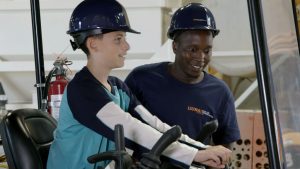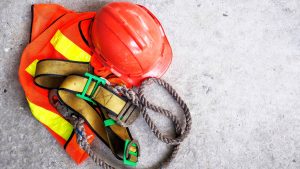The (IHSA) will be introducing a new mental health program customized for the trades in June that its developers say will take an important step in addressing stigma and stress along with building worker resilience.
Two mental health program experts with the IHSA say the program represents a leap forward in treatment of mental illness among trades workers, and responds to multiple calls from stakeholders.
Two pilot sessions of The Working Mind (TWM) for the Trades program held in May were well received, said Michelle Roberts, IHSA vice-president of stakeholder relations, and the first three of 15 courses that will be rolled out between June and December are already fully subscribed with a waiting list.
“We’re getting excited because June 24 will be the first course offered to the industry,” said Roberts recently.
“We know there’s going to be interest and that creates a lot of excitement for us because we definitely want to build the momentum of people being educated and having greater awareness.”
Mental Health Commission a key partner
The IHSA partnered with the to adapt TWM for trade workers and supervisors in the sectors IHSA serves — that’s construction, electrical, transportation, utilities and others.
TWM courses are tailored for workers, with a five-hour session; supervisors, with eight hours of training allotted; and facilitators, with a full five-day, eight-hours-per-day schedule.
Modules for all participants will cover Mental Health and Stigma, Mental Health in the Workplace and Stress and Resilience, with supervisors taking an additional course billed as Supporting Your Team.
The first sessions will be free of charge and delivered online. In future, there are plans for site visits.
Ten years ago, explained Kathy Martin, a research and mental health specialist with the IHSA, mental health programs were barely on the construction industry’s radar, in part because physical health and safety management systems in the sector are so complex.
But the began to champion the cause and some mainstream corporations and unions began to become adopters, along with a few construction stakeholders. The pandemic heightened awareness of the problems of stress, burnout and anxiety, and mental health developed into a broader societal discussion, outlined Martin.
TWM for the mainstream was not a good fit for the construction industry, Martin said, but it was a strong program and the IHSA began working to adapt it.
The stigma of seeking help, with workers in a male-dominated industry not accustomed to sharing their inner thoughts, she said, became a focal point.
“We might talk about aches and pains, but we don’t share those other (feelings) and that is probably the biggest barrier, the stigma,” she said.
Customized storytelling
Elements of TWM for the Trades that have been customized include a storytelling, experiential learning component with six videos for a facilitator to choose from.
The stats presented are trade- and industry-related and references to workplace factors contributing to poor mental health are reflective of trade working conditions.
“The people who are telling stories are real-life workers from Ontario’s trades. They’re sharing their struggles and then their path of recovery and their opportunity for hope,” she said. “Those stories are resonating because it is workers from the trades.”
The IHSA determined it was on the right track last fall when it held five focus-group sessions with stakeholders.
“We went through, ‘What is it that you need? What are you struggling with? What do you want to see, what content?’” said Roberts. “That affirmed there’s a need for base knowledge. The Working Mind gives us that base knowledge but with the lens of trades. So that gave us confidence.”
Martin said the need for analysis, prevention and treatment are broad and TWM represents merely one focus among many more to come.
“The Working Mind for the Trades is just one very small piece of a really big puzzle that I am trying to pull together,” she said.
Follow the author on X/Twitter .






Recent Comments
comments for this post are closed